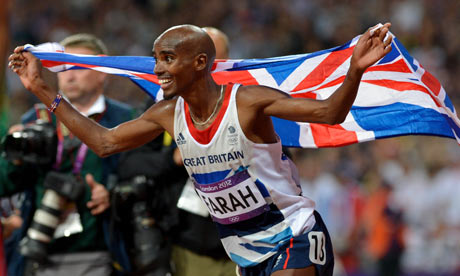
Will the Games leave a sports participation legacy? If they do, how will we know? As pundits and politicians demand that Britain's Olympic gold rush spawns an entire kingdom of Bradley Wigginses and Jessica Ennises it's worth remembering that no previous Games seem to have had such an effect on their host nation or city. And now the Commission for a Sustainable London 2012, which monitors the progress of the numerous Olympics organisations towards meeting its various "sustainability" objectives including sports participation, politely asks if enough work has been done to ensure that the GB Games will be different.
Where London itself is concerned, commission chair Shaun McCarthy says that no baseline research into existing levels of sporting activity in either in the host boroughs or across the capital as a whole has been conducted, despite the commission's suggesting it in a report in March 2011 (pdf). Without that, he points out, the success of any sports participation legacy becomes "incredibly difficult to measure." In a more recent report (pdf) the commission urged the government to be fully transparent about how it is meeting its legacy commitments.
McCarthy acknowledges the efforts of the Greater London Authority to do its bit, but stresses that ensuring a long-term knock-on effect in London from the current Games euphoria will require a different approach from whatever was taken in previous host cities. "A combination of policy interventions, targeted funding and wider health education programmes," is likely to be required, he says.
That sounds solid enough to me, but I'm not optimistic. Too many of the politicians riding the current feelgood wave give the impression that a fortnight of flag-waving, intoxicating though it is, will be enough to transform mass attitudes to doing sport, as opposed to just watching it on a screen. That Locog slogan about "inspiring a generation," help us forget that a significant number of school children in London (and everywhere else) do not find PE and team sports character-building, teamwork-fostering and all the rest of it, but utterly and pointlessly humiliating.
Some of us like doing sport, some of us don't. I ran 10,000 metres on Sunday morning after roaring the capital's own Mo Farah to victory over the same distance on Saturday night, but I was going to do it anyway. Persuading more Londoners, young and older alike, that keeping reasonably fit can be both pleasurable and satisfying is the task that lies ahead. It won't be glamorous, it won't be easy and it won't be televised. What chance, then, of it ever happening?







